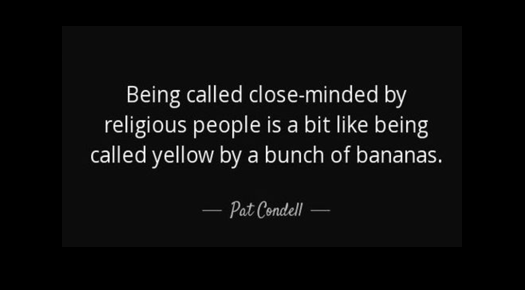
The conservative site The Daily Caller jumped to the conclusion that religious believers are more tolerant of differing viewpoints than atheists. The study conducted a further critical investigation of the idea that religious people tend to be dogmatic to some extent whereas non-religious people are undogmatic. Filip Uzarevic of the Catholic University of Louvain, one of the authors of the controversial study, said that “The main message of the study is that closed-mindedness is not necessarily found only among the religious.”
Atheists only scored higher on certain aspects of closed-mindedness, and not when it came to closed-mindedness as a whole:
The nonreligious compared to the religious seemed to be less closed minded when it came to explicitly measured certainty in one’s beliefs. However, and somewhat surprisingly, when it came to subtly measured inclination to integrate views that were diverging and contrary to one’s own perspectives, it was the religious who showed more openness. In sum, closed-mindedness (or at least some aspects of it) may not be reserved only for the religious. Moreover, in some aspects, the nonreligious may even ‘outperform’ the religious.
The study was based on 788 European adults, 445 of whom were either atheist or agnostic. The 255 of the remaining religious believers were of various Christian denominations, but the researchers also included 17 Muslims, 3 Jews and 17 Buddhists.
Authors of the study tried to research if the rooted idea that religiosity means dogmatism is true or false. They found out that it’s not always the case, sometimes atheists are also closed-minded. The results further suggest that, at least in secularized Western countries, where unbelief has progressively become normative, nonbelievers may be less socialized and less motivated to imagine, understand, and appreciate others’ perspectives.
There are always two sides of the same story and at least two different interpretations. As we can see, the conservative site is trying to highlight only that atheists and agnostics were generally less open to differing opinions than Christians. On the other side, more open-minded sites gave a fuller explanation of the results of the study. Of course it’s absurd to think that someone’s religious affiliation must define his/her rigidity and inflexibility.
Photo Credits: AZ Quotes
